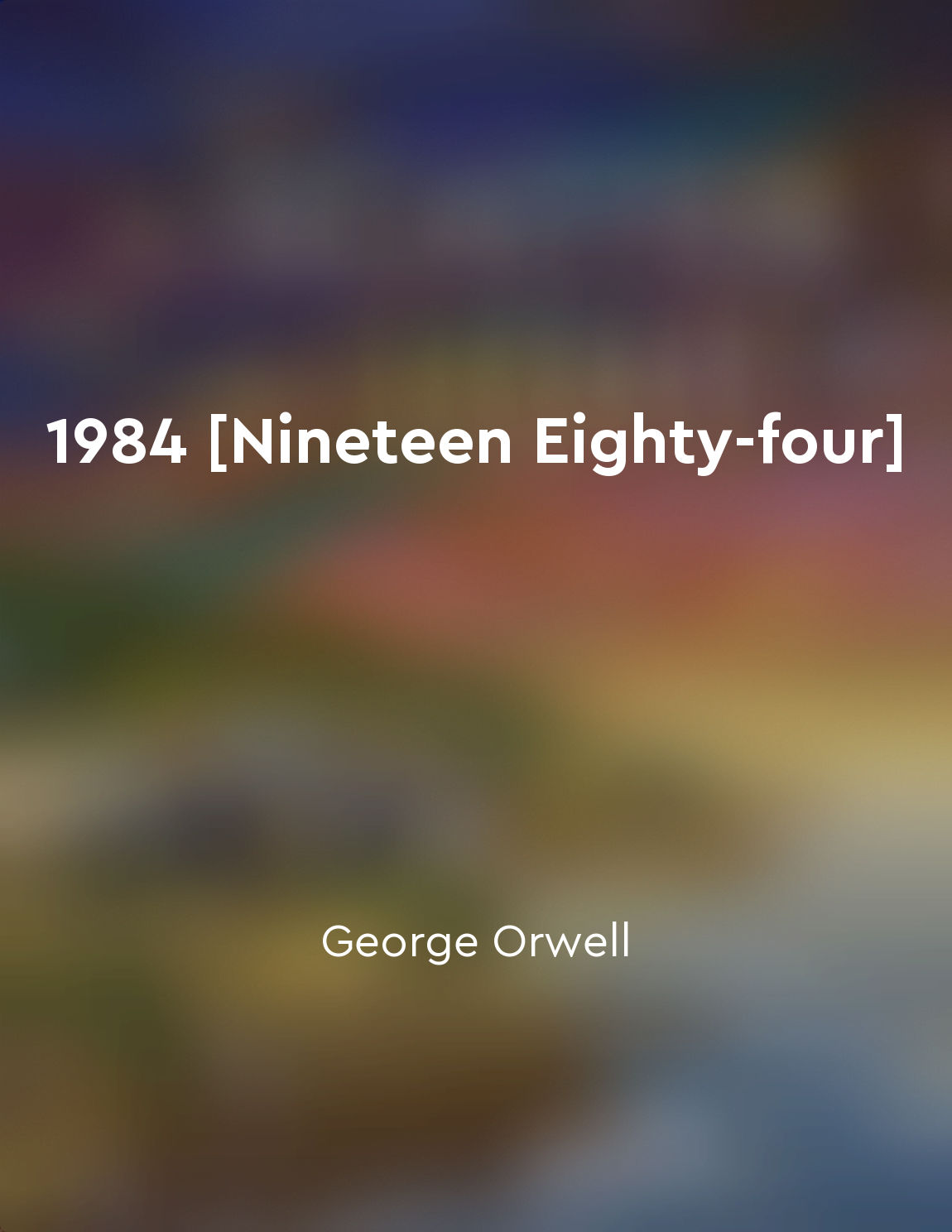The illusion of progress conceals the reality of oppression from "summary" of Darkness at Noon by Arthur Koestler
In the realm of political ideologies, the allure of progress often serves as a veil, obscuring the harsh truth of oppression that lies beneath. Those in power manipulate this illusion to maintain control over the masses, deceiving them with promises of advancement while simultaneously enforcing oppressive measures. This manipulation is depicted through the character Rubashov in 'Darkness at Noon,' who becomes a victim of the very system he once served. As a devoted party member, Rubashov believed in the ideology of progress and revolution, striving towards a utopian society where all would be equal. However, as he delves deeper into the inner workings of the party, he begins to see the cracks in the facade of progress. The Party, represented by its leader, exploits the illusion of progress to suppress dissent and maintain its grip on power. Any signs of opposition or deviation from the party line are swiftly dealt with, with dissenters labeled as enemies of the state and subjected to interrogation and punishment. The Party's propaganda machine works tirelessly to perpetuate the illusion of progress, feeding the masses with false promises and distorted truths. As Rubashov navigates the treacherous political landscape, he comes to a stark realization that the very ideology he once believed in has been perverted to serve the interests of a select few. The Party's pursuit of progress is revealed to be a facade, concealing the brutal reality of oppression and exploitation that underpins its rule. The illusion of progress blinds the masses to the true nature of their subjugation, allowing the Party to maintain control through deception and manipulation. In 'Darkness at Noon,' Koestler illustrates how the illusion of progress can be used as a tool of oppression, trapping individuals in a cycle of false hope and disillusionment. The stark contrast between the utopian ideals of progress and the grim reality of oppression serves as a cautionary tale, reminding readers of the dangers of blind faith in political ideologies. The illusion of progress may dazzle and deceive, but beneath its shimmering surface lies the dark truth of oppression.Similar Posts
Selfdiscovery is a journey worth taking
In life, there comes a moment when we realize that we must embark on a journey of self-discovery. It is a journey that is fille...
Empowerment breeds resilience in power dynamics
The concept of empowerment in power dynamics is a fundamental one that cannot be overlooked. When individuals are empowered, th...
Conformity is rewarded, dissent is punished
The Party demands absolute conformity from its members, requiring them to adhere to its ideology without question. Those who de...
Warning against totalitarianism
The dangers of totalitarianism loom large in the pages of both Animal Farm and 1984. Through vivid storytelling and keen observ...

Brainwashing techniques stifle resistance
The Party's brainwashing techniques are designed to eliminate any potential for resistance among its subjects. By controlling e...

The government suppresses creativity and freedom of expression
In a society where the government holds absolute power, individuals find themselves living in a state of constant surveillance ...
The Gulag was a tool of totalitarian control
The Gulag was not just a system of prisons and labor camps, it was a mechanism of control wielded by the totalitarian regime. I...
Solzhenitsyn highlighted the resilience of the human spirit
In the face of unimaginable suffering and oppression, the individuals depicted in 'The Gulag Archipelago' display an extraordin...

The government suppresses creativity and freedom of expression
In a society where the government holds absolute power, individuals find themselves living in a state of constant surveillance ...
Lithuanian immigrant family struggles in Chicago
The Lithuanian family had come to Chicago with high hopes, seeking a better life in the land of opportunity. However, reality q...
